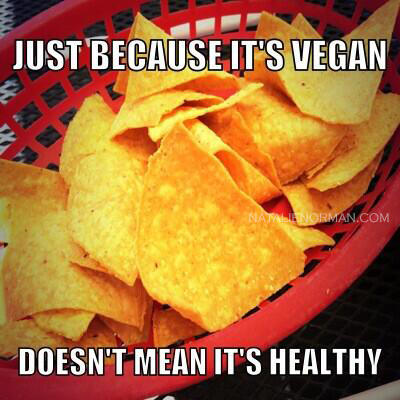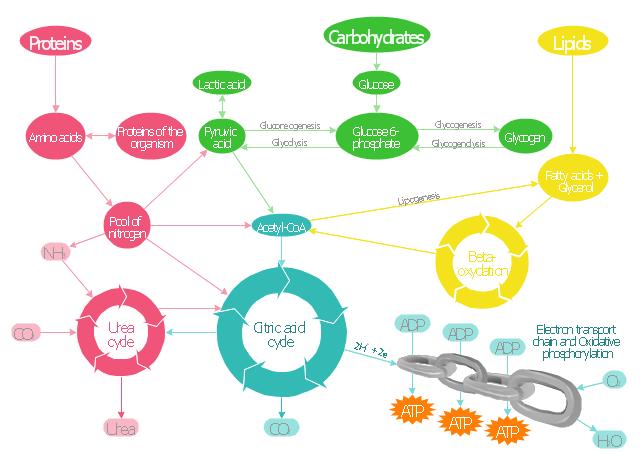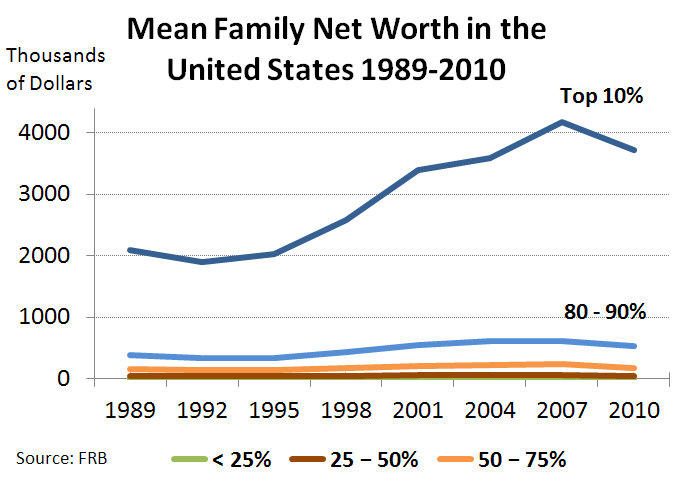There are many health-related beliefs that people hold. People hold strongly to these beliefs, because the beliefs have helped them move toward a healthier lifestyle, and they are convinced that the beliefs are absolutely true. However, the same beliefs cannot be applied to everybody, because there is a diverse range of "healthy". Health-related beliefs must be understood within a specific context, not in absolute terms. Let me explain.

Below is a list of popular health-related beliefs that get passed around in absolute terms. For many people, these tips actually work. Sometimes, people do operate more efficiently when given explicit, clear, unambiguous information. Real life is messy and can be very difficult to understand. So, an oversimplification of life is needed, even though the oversimplification does not cover the special caveats in the real world.
Artificial sweeteners are healthier than sugar.
Any health claim that mentions "healthy" without any further detail must be questioned, because "healthy" is really a very vague term. By what metric are artificial sweeteners healthy?
According to a specific study in the European Society for Medical Oncology, scientists have not found a correlation between the use of artificial sweeteners and cancer risk in humans. This is a good thing, actually, because artificial sweeteners are used in food, drinks, drugs, and hygiene products. So, if a link is established, then that spells danger to the entire population. We would all be poisoned by these synthetic chemicals in the environment.
According to a specific systematic review in the International Journal of Pediatric Obesity, scientists have not found a causal link of artificial sweeteners on weight gain and other metabolic diseases in youth. All links are correlational. For randomized controlled trials that can establish a causal link, the limited data in that category do not show beneficial or adverse effects due to the use of artificial sweeteners. But the subject matter is important to explore, because people use artificial sweeteners as a replacement for sugar so their children can still consume the food without packing on the pounds.
If the artificial sweetener is causing the weight gain, then the parents should be advised to drop artificial sweeteners completely; and it should be illegal to advertise that artificial sweeteners are healthier than sugar. However, if something else is affecting weight gain that coincidentally occurs among people who use artificial sweeteners, then that suggests that other factors (overall diet composition, level of physical activity, genetics, and possibly even the microbiome) are to blame.
There are several documentaries that demonize sugar and artificial sweeteners. Documentaries, unlike the peer reviewed scientific literature, have a different objective. Whereas the literature presents the facts as the scientists observe them, documentaries are made to persuade. If that means lying by omission (not talking about conflicting findings) and exaggerating the facts, then so be it. Lying and exaggerating are not necessarily bad things. Sometimes, you have to lie and exaggerate to get people to change their behavior or at least think about what they are doing that is not working for them.
Like I said, many people do operate more efficiently when given explicit, direct, unambiguous information. That kind of information is probably easy for the brain to process. I think the sugar documentaries have contributed a great benefit to society, because, even though they are undoubtedly biased, they are persuasive enough to get people more sugar-conscious and health-conscious. Becoming more health-conscious is a big move toward a healthier lifestyle. Indeed, there are people who drop added sugars and artificial sweeteners from the diet, eat clean, and become much happier and healthier. People like this woman below.
People should eat 6 small meals, not 3 big meals.
The essence of the belief means that eating small meals frequently throughout the day is healthier than eating large meals sparingly. Like I said, "healthy" is a vague term, because you can look at different metrics for healthfulness and come to wildly different conclusions.
There is scientific evidence that supports the belief that increased meal frequency is healthier in the sense of maintaining a healthy body weight. However, the scientific evidence is coupled with an increased intake of protein and consumption of complex carbohydrates in the overall diet. In the 2013 study titled, "Increased Protein Intake And Meal Frequency Reduces Abdominal Fat During Energy Balance And Energy Deficit," researchers recruited 44 people from the Saratoga Springs, New York, area through newspaper ads and flyers and screened them for participation.
36 of the 44 were able to participate. 6 more people left before the quasi-randomization. Then, 2 more people left because they rejected the meal plans. So, the study actually used 28 of the original 44. Participants were non-smokers, physically inactive, overweight or obese, middle-aged, and weight-stable. All participants followed a 62-day diet plan of whole/unrefined/unprocessed food products, with assistance from the principal investigator and the registered dietician for selecting the products.
The results showed that body weight remained stable in all assigned groups, but the total and abdominal body fat decreased in HP3 and HP6 groups, and lean body mass remained high in HP6. Thermogenesis after a meal was significantly greater in HP6 group than in HP3 group. The interesting fact is that the HP6 group was comprised of mostly women, which tended to struggle in losing belly fat in weight-loss intervention programs compared to men. This ensures that eating a protein-rich diet frequently is most effective at losing abdominal fat.

The people in HP3 were fed pre-packaged (Myoplex Carb Control; 150 kcals, 3.5 g fat, 5 g carbohydrate, 25 g protein; EAS, Abbott Laboratories) protein shakes or bars to be included in their meals. During the energy balance phase, HP3 subjects consumed about 180 g/protein per day; during the energy deficit phase, they consumed 25% less (135 g/protein/day). The people must eat breakfast (6:00-9:00 am), lunch (11:00 am - 2:00 pm), and dinner (5:00 pm - 8:00 pm). The people in HP6 were also fed the same protein shakes or bars to be included in their meals. During the energy balance phase, HP6 subjects consumed about 172 g/protein/day; during the energy deficit phase, they consumed 25% less (129 g/protein/day). The people must eat within one hour of rising from bed, every 2.5-3 hours throughout the day, at 8:00 pm, and at 9:00-10:00 pm just before bed.
All studies have limitations of what they can measure. The researchers in this study acknowledged that most participants were women, and only 4 were men. I speculate that more women participated in the study, because women are more likely than men to be self-conscious about appearance, so when they read an ad that promoted weight loss, they were more willing to try it out. The researchers also acknowledged that their measure of abdominal obesity did not distinguish between visceral (near the vital organs) and subcutaneous (near the skin) fat stores; that they only measured the acute (90 min) effect of feeding; and that there was a reduction of dietary fat intake throughout the study.
Therefore, an oversimplistic dietary recommendation is to eat anything for breakfast. Someone on GirlsAskGuys made a comment to my comment that "Eating in the morning, even if it's just yogurt, jump-starts your metabolism from when it was slower at night and keeps you in thermogenesis." There is something wrong with this comment. Many store-bought yogurt containers contain a lot of refined sugars and not much protein. In the study that we've looked at, the researchers examined the thermogenesis after a meal that was part of a protein-rich diet. Arguing that anything (yogurt? doughnut?) will significantly increase thermogenesis is a bit exaggerating, don't you think? Unless that person shows scientific evidence that doughnut and yogurt will increase thermogenesis significantly after breakfast, that person has made an unverifiable claim.
A vegan diet is healthy.
Remember what I said about the term "healthy"? It's completely meaningless. Just about anyone - and I mean, ANYONE - can say that something is healthy by whatever imaginary metric and get away with the claim, but the claim is completely unfalsifiable and untestable.
Veganism is foremost an ethical stance against animal cruelty. Environmentalism and human health are not typically held to be the principal reasons for veganism. Those are side reasons. When it comes to environmental issues, vegans don't consider all the viable options, but they still consider "veganism" as the best solution. In reality, people don't have to eat meat derived from cattle, swine, birds, or fish; they can eat meat derived from bugs. Bugs are fast-reproducing creatures that are incredibly rich in animal protein. When it comes to human health issues, vegans don't consider that humans are extremely adaptable omnivores. There is no biological justification for herbivore behavior. Therefore, any appeal to nature just doesn't work.

In a 1991 qualitative study titled, "Health-related beliefs and dietary practices among vegetarians and vegans," researchers found that morality was the main reason for people to go vegetarian or vegan. The health benefits of a vegan or vegetarian diet were seen as the rewards of moral rectitude. Does this mean that eating meat is unhealthy? No. Some people can eat mostly meat and be perfectly fine with their lives.
Does this mean eating meat is wrong? Well, that depends on "what kind of meat" you are talking about. For millennia, people have had different and conflicting definitions of eating ethically. The Jews have their way of eating ethically; the Muslims have their way; and now, in the 21st century, the rise of the secular vegans and vegetarians have their way. Everybody has his or her own definition of "meat" and how to eat as ethically as possible, away from luxuries as much as possible.
In a 2006 systematic review titled, "Veganism and osteoporosis: a review of the current literature," the review found that many studies consistently showed that vegans have lower bone mineral density, lower calcium levels, and lower overall vitamin D levels than their non-vegan counterparts. However, there had been no conclusive relationship found between the risk of bone fractures and the ingestion of animal products or lack thereof.
The reviewers then speculated that the BMI is the factor that contributes to bone fractures. A higher BMI protects against bone fracture, because of the greater muscle mass and fat necessary to sustain coordination. Even though the vegans studied were not more likely to have osteoporosis, they did show signs of lower BMD levels than non-vegans, and having lower BMD levels would suggest a greater risk of osteoporosis.

Is veganism healthy? That question is like asking "Is omnivorism healthy?" There are so many ways to eat a vegan diet, and there are so many ways to eat an omnivore diet that the question itself becomes entirely subjective. If done well, then a vegan diet can be as healthy as an omnivore diet. But vegans, like their non-vegan counterparts, can eat just as unhealthily. One way to do that is to consume nothing but carbonated sugar water every day. That person will be so nutrient-deficient, it's not even funny anymore.
Raw-foodism is healthy.
Some people believe that a raw food diet is healthy. Some of those rawfoodists have their own cooking shows that promote the raw vegan diet. In a way, rawfoodism can overlap with veganism at a fault. In a 2016 academic review titled, "On orthorexia nervosa: A review of the literature and proposed diagnostic criteria," researchers found special cases of people who took healthy eating to the extremes. It's called Orthorexia nervosa.

At the age of 14, one woman was told by a nutritionist to reduce the amount of dietary fats as a treatment for her severe acne problems. The young woman followed the dietary recommendation. When she was 16 years old, she became a strict ovo-lacto vegetarian. When she was 24, she eliminated eggs and milk, adopting a vegan diet. She got to the point where she only ate uncooked vegetables, because she thought cooked vegetables were unhealthy. Her health progressively declined. At the age of 28, probably when she got interviewed in the case study, she suffered severe malnutrition, low levels of protein, vitamin B12; and had a BMI index of 10.7. Even though the young woman thought she was eating healthfully, in reality her state of health indicated otherwise.
A 30-year-old man restricted his diet to 3-4 spoons of brown rice and fresh, unsalted vegetables to treat his tic disorder. After 3 months, he became bedridden and was hospitalized.
A 33-year-old woman ate nothing but fresh fruits, raw vegetables, and uncooked eggs for 8 years. Coincidentally, she became medically psychotic. Researchers were not sure whether her diet was causing her schizophrenic psychosis or not.
A 28-year-old man restricted his diet to home-made protein shakes for 3 years. This restriction resulted in severe malnutrition and extremely low BMI.
All the case-study patients were deeply concerned about eating healthfully, and they took eating healthfully extremely to the extent that the eating patterns became irrational and unhealthy. They were subsequently diagnosed with Orthorexia nervosa.
What do these people tell us about the raw food diet? Well, the raw food diet has an incredible ability to induce Orthorexia nervosa in some individuals. This certainly doesn't mean that rawfoodists are all malnourished; it's just that some people take rawfoodism and veganism to the extreme and become malnourished.
Historically, it is likely that early humans evolved a bigger brain, because (1) they ate raw meat and/or (2) the cooking process made the meat and plants more digestible. The cooking process probably also killed germs. People may argue all they want that cooking is "unnatural", because it is not observed in other species; but humans are unique in that they figured out how to control fire and used fire to heat food to destroy the bad stuff (germs) and take in the good stuff (nutrients).
So, eating a raw-food diet is probably going back to what prehistoric humans ate, before they evolved the ability to control fire and developed a bigger brain. How that kind of diet is healthy for a developing anatomically modern human child is nonsense.
Excessive protein doesn't get stored as fat.
This belief completely misunderstands how the body metabolizes proteins, carbohydrates, and fats. It is possible that this belief stems from a gross oversimplification of the scientific finding found in one of the above mentioned studies. The extreme oversimplification takes the scientific finding so out of context that the claim itself actually contradicts the science at the foundational level.

In reality, a higher intake of anything will disrupt the energy balance and lead to weight gain. Therefore, the purpose is to always keep an energy balance. Even bodybuilders who have to eat at a calorie surplus are really changing the body composition, which will elevate the metabolism, so they will have to meet the higher calorie expenditure with commensurate calorie intake. I think the dietary composition and meal frequency are two important things to consider while eating at energy balance. If one wants to lose weight, then one just has to cut portion sizes.
Cutting portion sizes should be easy to do, because it is much cheaper to buy less high-quality food than more. If a big sack of rice is bought, then it will definitely take longer to finish the sack of rice when the person is eating at a calorie deficit than at a calorie balance or surplus. We should be happy that we live in the 21st century and have access to a grocery store that provides food that is harvested by farmers and corporations who make up an extreme minority of the population; and we should embrace overweightness as a sign of collective prosperity and productiveness, not a target for condemnation and shame.*
*This does not regard the extremely uneven wealth distribution in the United States, which is to say that people who earn below the poverty line do exist and tend to be fatter than people who are wealthier. They are fatter, because they live in food deserts or may be uneducated and vulnerable to mass marketing, not because healthy food really is more expensive than junk food.

 Holidays
Holidays  Girl's Behavior
Girl's Behavior  Guy's Behavior
Guy's Behavior  Flirting
Flirting  Dating
Dating  Relationships
Relationships  Fashion & Beauty
Fashion & Beauty  Health & Fitness
Health & Fitness  Marriage & Weddings
Marriage & Weddings  Shopping & Gifts
Shopping & Gifts  Technology & Internet
Technology & Internet  Break Up & Divorce
Break Up & Divorce  Education & Career
Education & Career  Entertainment & Arts
Entertainment & Arts  Family & Friends
Family & Friends  Food & Beverage
Food & Beverage  Hobbies & Leisure
Hobbies & Leisure  Other
Other  Religion & Spirituality
Religion & Spirituality  Society & Politics
Society & Politics  Sports
Sports  Travel
Travel  Trending & News
Trending & News
What Girls & Guys Said
Opinion
1Opinion
good
perfect